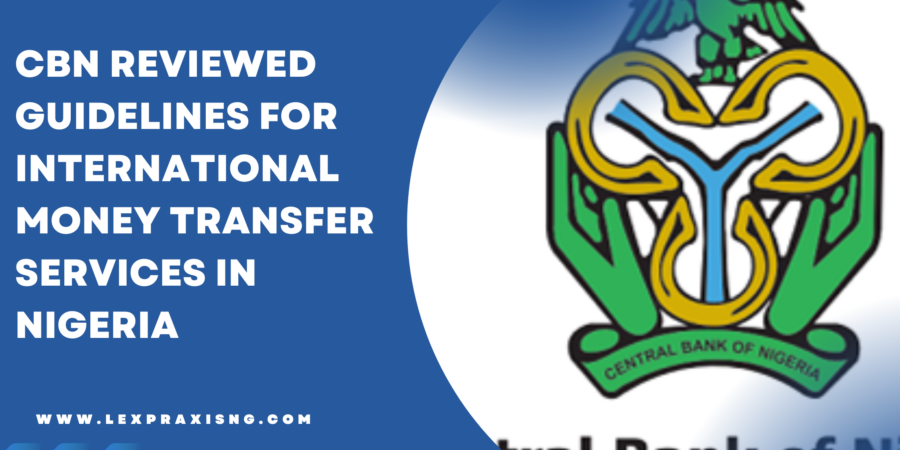The Central Bank of Nigeria (CBN) released revised guidelines for International Money Transfer Services in Nigeria on January 31, 2024. The guidelines are aimed at liberalizing the foreign exchange market, ensuring transparency in foreign exchange transactions, boosting diaspora remittances and foreign capital inflows, promoting efficient price discovery mechanisms, and improving the ease of doing business for International Money Transfer Operators. This article aims to examine the key changes that have been made to the pre-existing guidelines and their implications for stakeholders in the sector.
KEY HIGHLIGHTS OF THE REVISED GUIDELINES
1. Minimum Share Capital Requirement:
The Central Bank of Nigeria (CBN) has increased the minimum share capital requirement for International Money Transfer Operators (IMTOs) seeking licensing to $1,000,000 (one million US dollars) for foreign IMTOs and its equivalent for indigenous IMTOs. This is a significant change from the previous share capital requirements of N2,000,000,000 (two billion naira) for indigenous IMTOs and N50,000,000 (fifty million naira) for foreign IMTOs.
2. Prohibition of banks and financial technology companies:
All banks and fintech companies can no longer apply for an International Money Transfer Operator (IMTO) license from the CBN. However, they can operate as IMTO agents.
3. Mode of disbursement of inbound transfers:
All inbound money transfers to Nigeria must be paid to individuals in Naira through a bank account or in cash.
4. Approved IMTOs may conduct business through agents:
An approved IMTO may conduct its business through an agent provided the following conditions are satisfied;
a. Executes a contract with each agent specifying the terms and conditions of such engagement.
b. Maintain a valid contract for the tenure of the agency
c. Notify the bank of the appointment of each agent
d. Conduct the business following all the applicable laws, regulations, and guidelines
5. All IMTO approvals are subject to annual renewals:
All IMTO approvals are subject to an annual renewal fee of N10,000,000 (ten million naira) or any amount the CBN may specify from time to time. Renewal of IMTO approval shall be done within the first quarter of every year.
6. The limited scope of permissible activities and expanded demography for transfer services:
The updated guideline now allows only international remittances into Nigeria from outside the country. However, the category of people and organizations who can benefit from such services has been expanded. It is no longer restricted to individuals only but also includes “person to person”, “business to person” and “business to business”. This change was made to provide more options for customers. The previous guideline only allowed diaspora remittances for individuals to prevent corporate customers from exploiting the service by splitting their payments into smaller amounts. This was done to avoid the statutory reporting threshold requirements on their transactions.
CONCLUSION
The Central Bank of Nigeria’s approach to promoting transparency in foreign exchange transactions by liberalizing the foreign exchange market is highly commendable. However, while implementing the revised guideline, it is expected that certain vague aspects of the guideline will be clarified. For instance, it is not clear whether the new share capital requirement needs to be deposited in escrow, as is the case with other license applications with the CBN. Additionally, the exchange rate that will be used to assess the new share capital requirement for indigenous IMTOs is also unclear. If you need further information regarding these concerns, you can leave a message via the WhatsApp icon on this page or HERE, and we will respond to you as soon as possible.




Leave a Reply